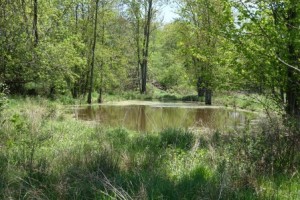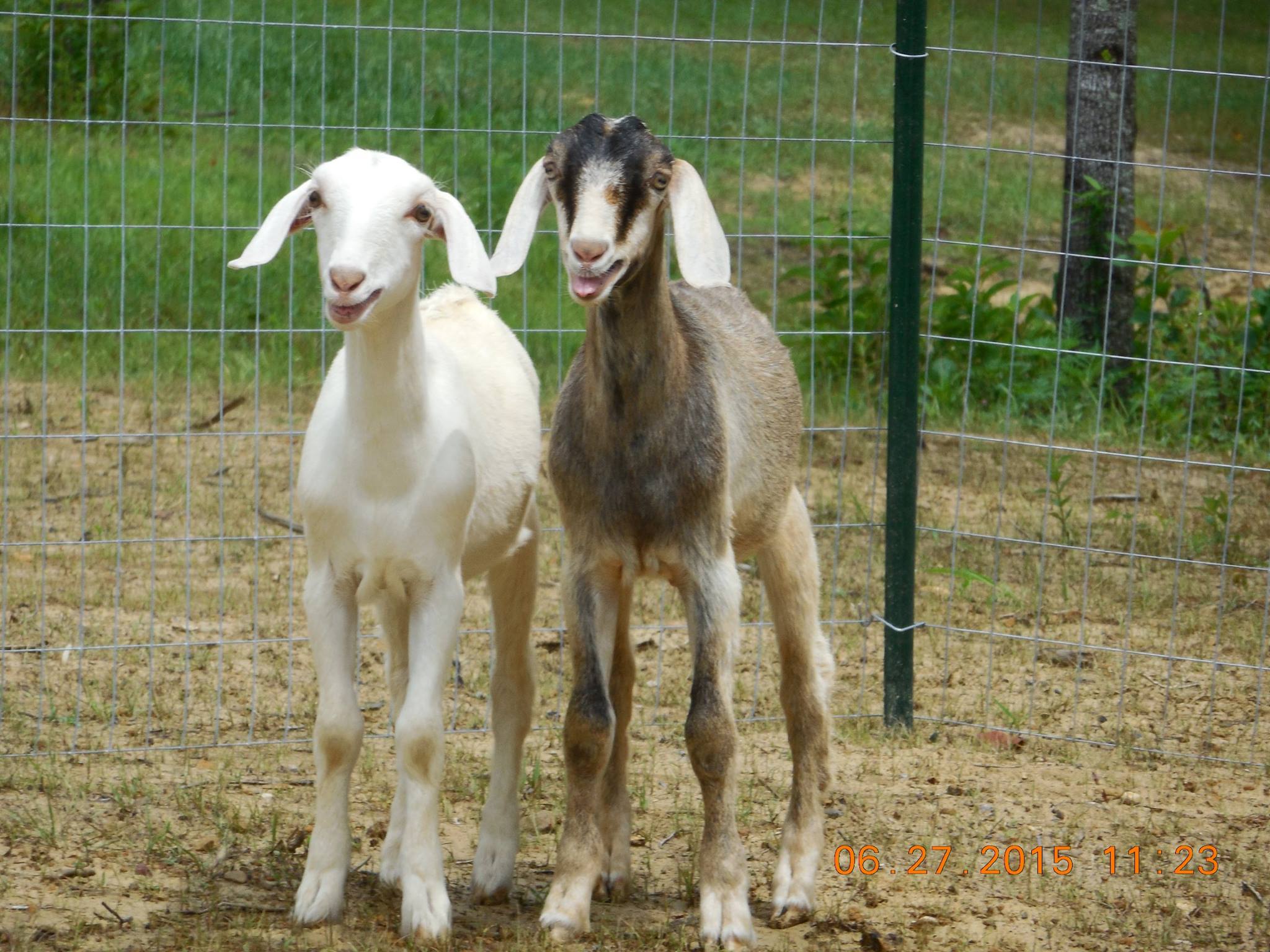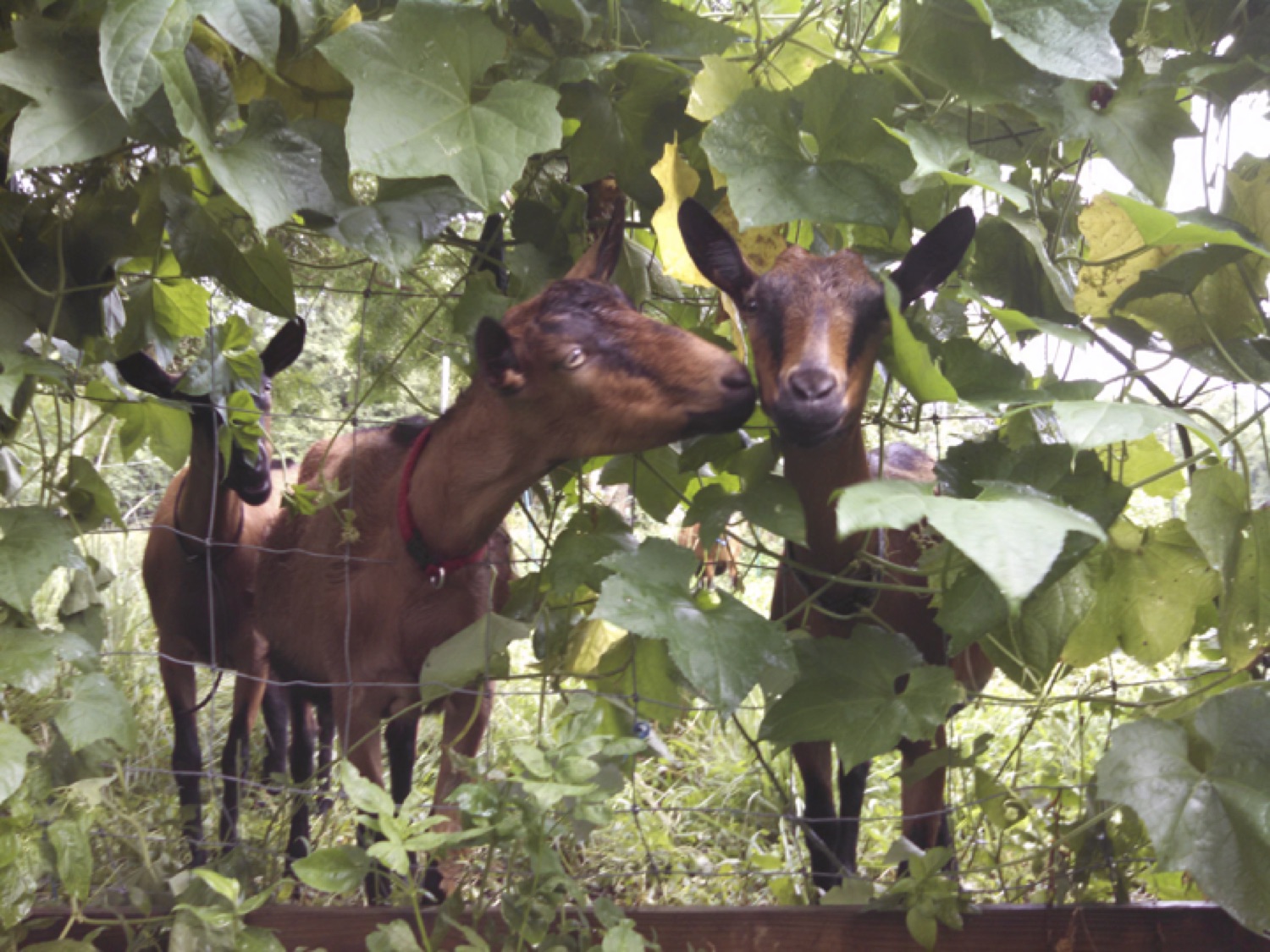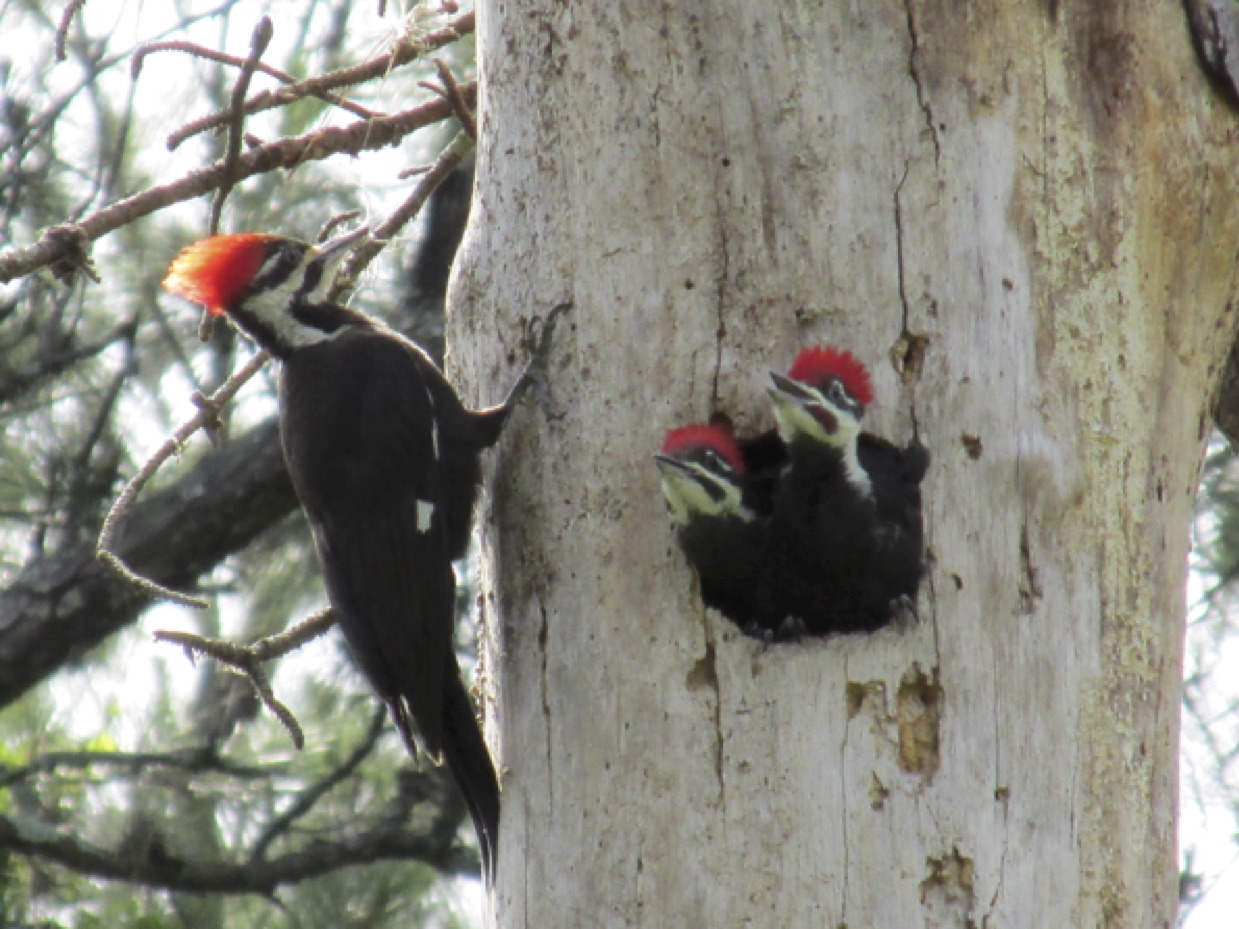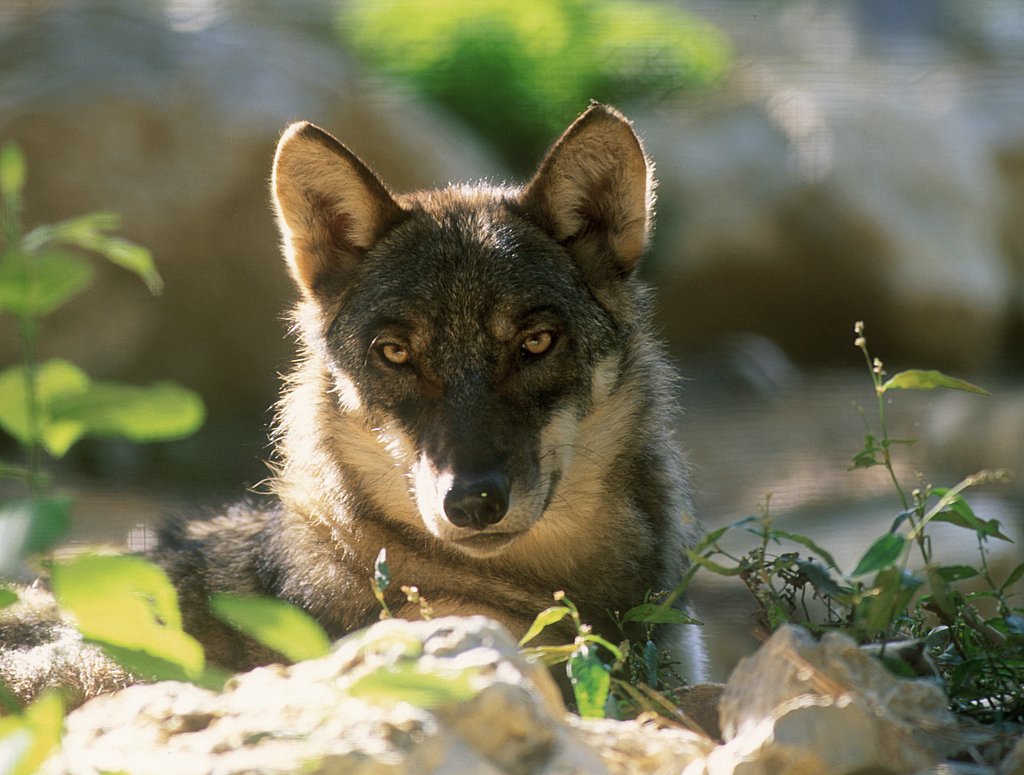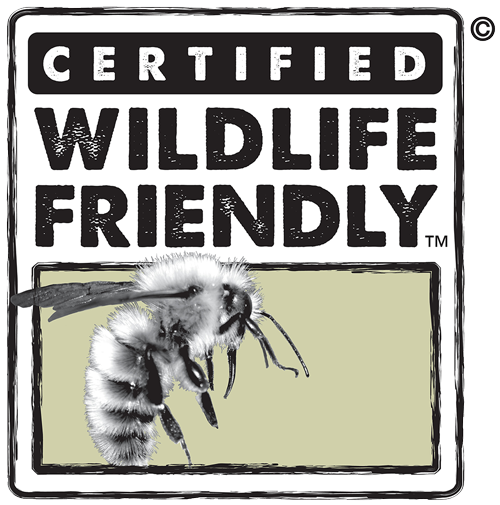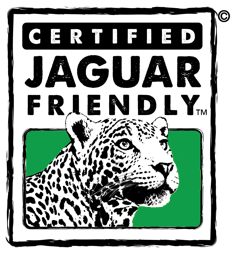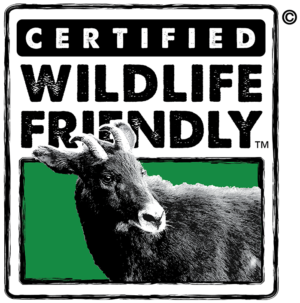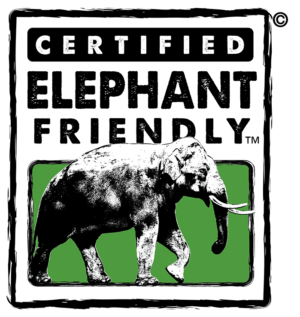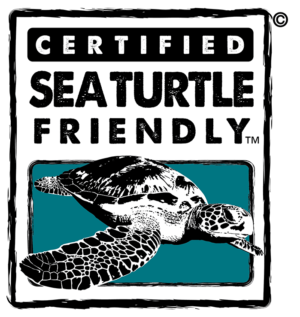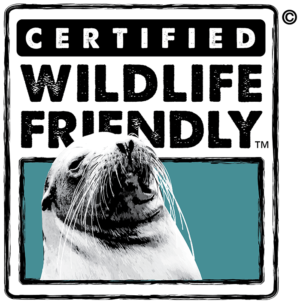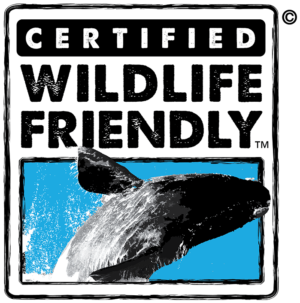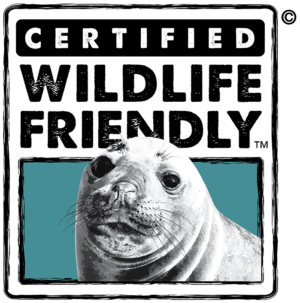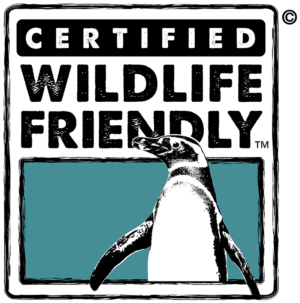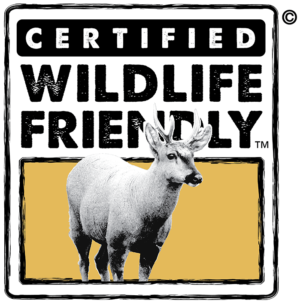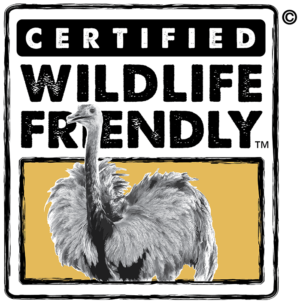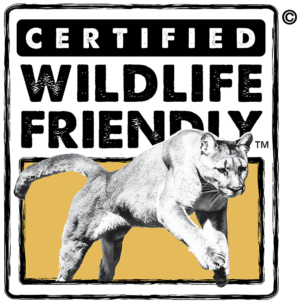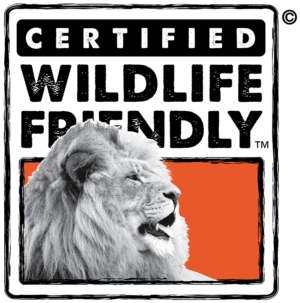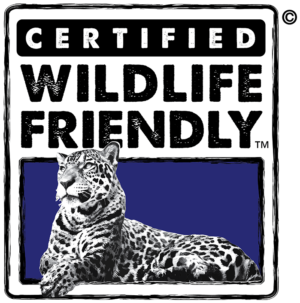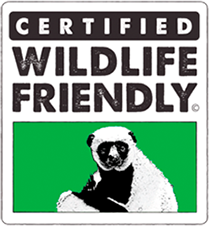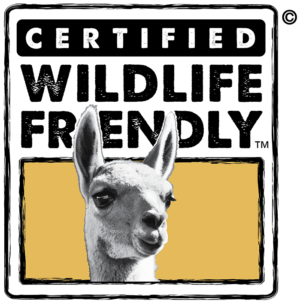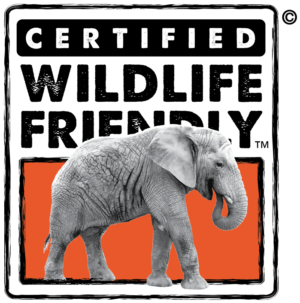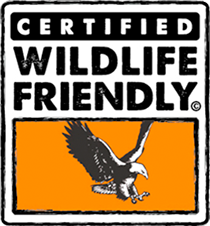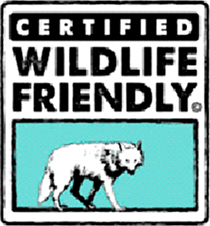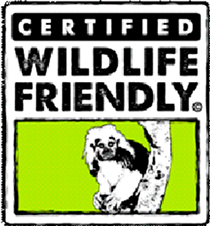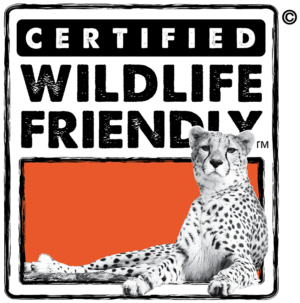First Michigan Farm Certified Wildlife Friendly for Careful Stewardship of Land and Livestock
Windshadow Farm Maintains Threatened Avian, Amphibian and Reptilian Species While Producing High Quality Milk
FOR IMMEDIATE RELEASE
BANGOR, MI (05 October 2015) Ronald and Suzanne Klein of Windshadow Farm are the first in the state of Michigan to be recognized as Certified Wildlife Friendly®, due to stewardship of wetlands and habitat for species from amphibians and reptiles to ground-nesting birds and a host of raptors. Windshadow Farm ensures the health of its 150-head dairy goat herd in concert with its surroundings. Attention to detail enables the success of a diverse away of wildlife including the ground-nesting bobolink, a songbird, and state-listed snake and frog species of special concern.Great Pyrenees Windshadow
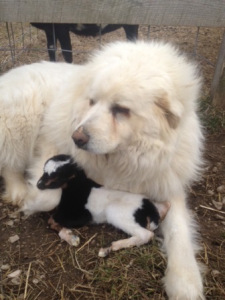
The natural areas surrounding Windshadow Farm allow for migration of coyotes and fisher through a marsh extending from the Black River. Two Great Pyrenees livestock guardian dogs are with the dairy herd at all times, and vulnerable animals are gathered within a secured dry lot at night. “The bonding [between the dogs and the goats] is incredible,” says Ron, noting that one newborn kid snuggled up with one of the dogs, Libby, when it became separated from its mother.
Ronald and Suzanne enjoy identifying the multiple species of turtles, frogs, toads and snakes found on the property and regularly see egrets, herons, and sandhill cranes, along with a host a raptors. Instead of draining seasonally-wet areas, the farm has developed a management intensive grazing system around them. “We maintain a grassed perimeter around our pastures and time our hay crop and grazing to protect ground-nesting birds and capture rain water,” says Ron. Ron and Suzanne believe they are seeing an increase in native pollinators due to their careful management and efforts to work with nature. The return of pollinators, along with more amphibians and reptiles, are signs of a healthy ecosystem on Windshadow Farm.
“We’re trying to farm as environmentally responsibly as we can,” says Ron. From the use of solar power to heat the dairy parlor’s water and to run the farm’s Polaris, Windshadow Farm considers its responsibility to future generations integral to its work. “Third-party recognition as Certified Wildlife Friendly® is important to our farm,” says Ron. “It provides a goal for us based on standards and knowledge. More importantly, it is recognition that legitimizes to our community what we all need to do in order to have a decent world for our grandkids and beyond.”
In addition to its Wildlife Friendly® certification, Windshadow Farm & Dairy is certified for its high-welfare animal care by the Animal Welfare Approved program. The farm is also a Michigan Grade A Dairy and certified for Livestock, Homestead and Cropping under the Michigan Agricultural Environmental Assurance Program. Further, Ron and Suzanne also serve on the board of directors of the Michigan Land Trustees, an organization that has promoted local food, small farms, and rural revitalization since 1976.
##
About Windshadow Farm
Windshadow Farm raises and milks a herd of pasture-raised Lamancha, Alpine, Nubian, Saanen dairy goats under the watchful eyes of 2 resident Great Pyrenees livestock guardian dogs. The farm operates in partnership with Evergreen Lane Creamery. Evergreen Lane Artisan Cheese from Windshadow Farm’s quality milk can be found throughout Western Michigan, at the Evergreen Farm tasting room in Fennville, MI, and in Chicago. For more information, see Evergreen Lane Farm & Creamery or call (269) 599-0467.
About Wildlife Friendly Enterprise Network
The Wildlife Friendly Enterprise Network and its Certified Wildlife Friendly®and Predator Friendly® programs represent farmers, ranchers, artisans and conservation heroes from around the world. Participating farms in North America maintain and enhance wildlife habitats and employ a mix of careful observation and proactive practices to allow wildlife and livestock to coexist.
Certified Wildlife Friendly® products contribute to the conservation of over twelve million hectares of diverse wetlands, forests, and grasslands; protect keystone endangered species in North America, Africa, Asia and Latin America, including wolves, elephants, cheetahs, spectacled bears and snow leopard, and benefit over 200,000 people through increased food security, income and employment. For more information visit: WildlifeFriendly
Contact: Julie Stein: Julie@wildlifefriendly.org

FOR IMMEDIATE RELEASE
WILLIAMSBURG, KY (September 9, 2015) Running an 8-acre farm near the 700,000 acre Daniel Boone National Forest, one of the most rugged areas in South Central Kentucky, Greg Sims and his wife, Cathy don’t mind the idea of sharing a little of his bounty with wild neighbors. Yet, he is careful to ensure his small flock of laying hens, young goats and bee hives do not become easy prey for area wildlife.
“If there are critters around, we’ve got them,” notes Greg. The Daniel Boone Forest is home to black bear, bobcats and coyotes, along with several endangered bat species.
Greg has a made a number of adaptations to ensure predators don’t get an easy meal from his farm, despite being open to wildlife passage and having 4 acres of woods. He uses a highly-secure shed to house his chickens and goats at night. And, he and his dogs are a frequent presence around the farm throughout the day when the animals are out on pasture.
To protect the coop against hawks, Greg zig-zagged nylon cord above the run, strung with old compact disks, which glint in the sun and rotate in the breeze. While abundant on the property, “I haven’t had a hawk come near the coop in almost 3 years” says Greg. A heavy door and secure opening mechanism keep out possums, raccoons, and foxes, among other potential visitors.
Cuddle Coop Farms achieved Certified Wildlife Friendly® status for its proactive attention to coexistence with wildlife. With dairy goats and honey bees as recent additions to the farm, electric fence and motion detector lights may soon join the Cuddle Coop’s mix of practices. Even more than honey, the pupae, larvae and eggs can serve as a strong attractant to bears. So far, Greg has found that keeping his livestock secure is both good stewardship and a good investment.
“I’ve always been an outdoors guy,” says Greg, mindful that not too many retired individuals take on the labor of farming as a later-life career. With a market garden dedicated to heirloom vegetables, home-canned products and specialty baked goods prepared by Greg’s wife, Cathy, as regular offerings at 3 weekly farmer’s markets, the Sims family has to fit relaxation into a demanding lifestyle. Greg expects goat’s milk and bee products to become a prominent addition to offerings as his livestock mature.
As a transplant from New Jersey, Greg understands the luxury of having a nearest neighbor one-half mile down the road and elbow room for people and wildlife. “New Jersey was called the Garden State for a reason,” he said. With so many family farms in northeast having been converted to housing, Greg is delighted to be surrounded by public land and neighboring farms: “I’m an old marine vet, exploring something I always thought I might want to do.
##
About Cuddle Coop Farms
Cuddle Coop Farms is a family farm in Eastern Kentucky that produces eggs from heritage Black & Lavender English Orpington, Brahma, and Wyandotte hens, along with heirloom vegetables, baked goods, and canned goods including vegetables, salsa, jams, jellies. The farm also offers Jersey Style Dirty Dogs (hot dogs) at 3 farmer’s markets per week. Now Certified Wildlife Friendly® for its land management practices, the farm is run by a retired Marine Corps Veteran and his wife. Cuddle Coop Farms is also certified as Kentucky Proud, Appalachian Proud and Homegrown By Heroes. For more information, visit Cuddle Coop Farms on Facebook.
About Wildlife Friendly Enterprise Network
The Wildlife Friendly Enterprise Network and its Certified Wildlife Friendly® and Predator Friendly® programs represent farmers, ranchers, artisans and conservation heroes from around the world. Participating farms in North America maintain and enhance wildlife habitats and employ a mix of careful observation and proactive practices to allow wildlife and livestock to coexist.
Certified Wildlife Friendly® products contribute to the conservation of over twelve million hectares of diverse wetlands, forests, and grasslands; protect keystone endangered species in North America, Africa, Asia and Latin America, including wolves, elephants, cheetahs, spectacled bears and snow leopard, and benefit over 200,000 people through increased food security, income and employment. For more information visit: www.wildlifefriendly.org
Hammock Farm Gourmet of Brooksville Provides Wildlife Habitat for Native Reptiles and Mammals While Producing Gourmet Meats and Eggs
Brooksville, FL (JULY 10, 2015) For Certified Wildlife Friendly® agricultural producer Jean White of Hammock Farm Gourmet, allowing wildlife to flourish is as critical as caring for her cornucopia of pasture-raised meat goats, pigs, sheep and chickens.
“We had a pig wallow full of [native] tadpoles I kept putting water into,” says Jean. Whenever Jean can encourage local wildlife to succeed in the face of Florida’s tide of invasive species, she takes action. “We need to pay attention to all the little creatures,” says Jean, noting that she has a butterfly garden on the 22 acre property—which includes 7 acres of forest—and leaves stands of native plants, including elderberries and wild persimmons, to provide food and habitat for wildlife, especially birds.
Larger wildlife also make use of the farm, which lies on the flight path between an eagle’s nest and its fishing spot. With avian predators, bobcats and deer as regular visitors to a creek that borders the property, acting to keep Hammock Farm Gourmet’s heritage breed animals safe from predators is an integral part of life on the farm. In order to protect her newborn kids and lambs, Jean keeps them in pastures nearby to frequent human activity. Chickens, which are on pasture during the day, are enclosed at night in a well-secured coop.
Jean has also found that she has better success with Australorp chickens, a heritage breed with a larger body size with black feathers. Lightered-colored chickens, as well as smaller birds, appear to be preferred by hawks. “We do our best to make sure we’re not inadvertently feeding the wildlife while still making sure they can pass through our property and go about their daily business,” says Jean.
“In our state, the corridors for bears and panthers are on cattle ranches,” she says. “We need consumers to understand the connections between farming and conservation.” By gaining recognition for Hammock Farm Gourmet as a Certified Wildlife Friendly® farm, Jean is glad showcase how agriculture and conservation fit together. Read more »
FOR IMMEDIATE RELEASE
Chianti Cashmere Goat Farm earns Wildlife Friendly® Certification for Coexisting with Wolves
Radda in Chianti, Italy: – 02 Dec 2014 – The Wildlife Friendly Enterprise Network (WFEN), a global community dedicated to supporting products that conserve threatened wildlife and contribute to economic vitality in rural landscapes, is pleased to announce the awarding of Wildlife Friendly® Certification to Chianti Cashmere Goat Farm a sustainable luxury cashmere operation in the Tuscany region of Italy which raises cashmere goats while using predator-friendly tools to coexist with wolves.
“We applaud the patience, hard work and investment that producers like Chianti Cashmere have made in order to coexist with a keystone predator like wolves. By awarding our certification label which recognizes the use of non-lethal farming and herding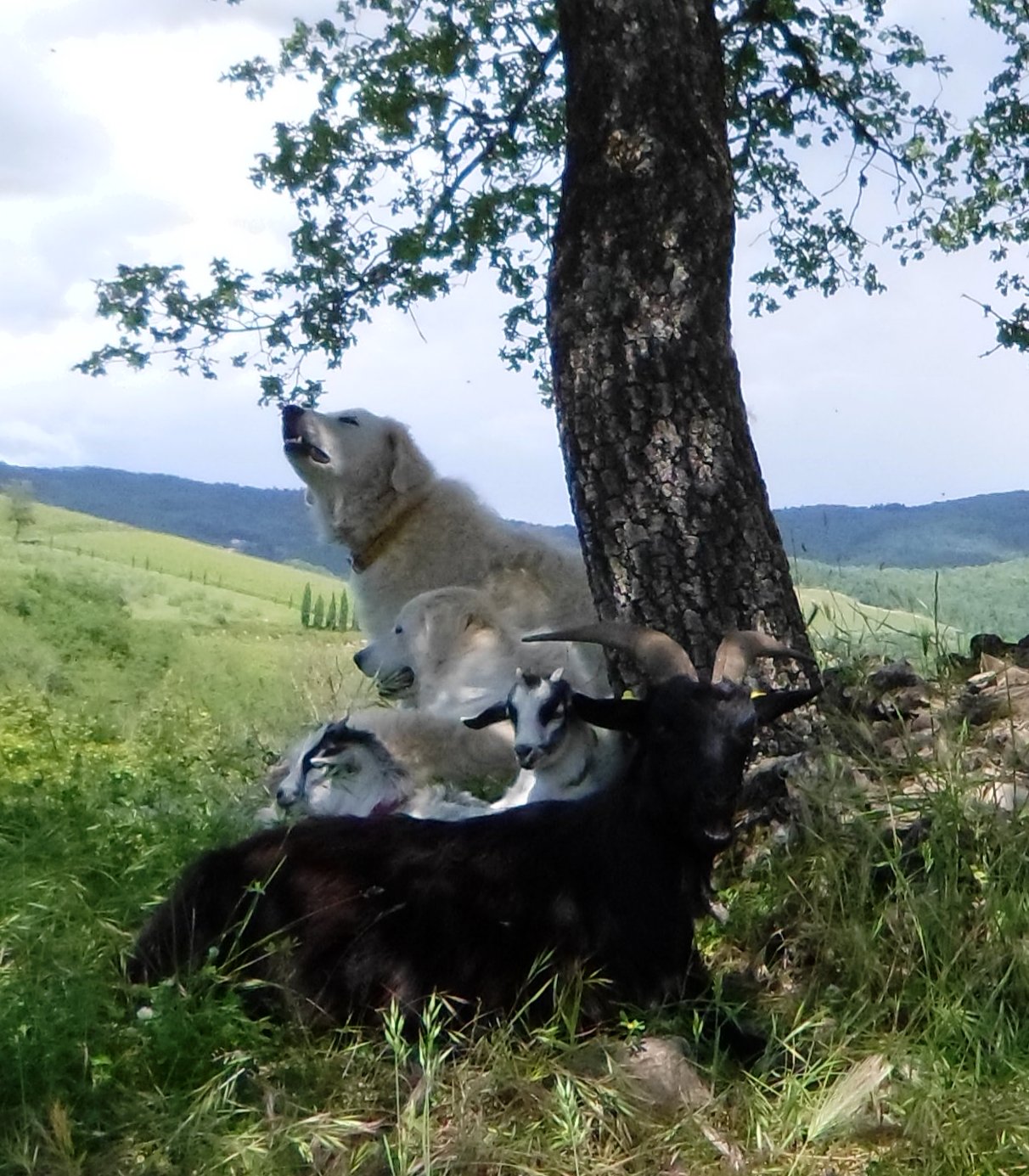
Predator-friendly practices used by Chianti Cashmere include employing a dozen Abruzzo guard dogs for their herd of 250 Cashmere Goats, an ancient breed of shepherd dog raised for centuries in southern Italy, to protect against wolves and bears.
Dr. Nora Kravis, the founder and owner of Chianti Cashmere, is also working with Dr. Duccio Berzi, a technical advisor for the non-profit Italian group Canislupus Italia, towards the selection and implementation of preventative and non-lethal anti-predator solutions with the goal of making the farm a model for Best Management Practices (BMP) to spread predator-friendly know-how and certification to other Italian herders.
In addition, Dr. Kravis is an expert on pastoralism and cashmere goat genetics, with degrees in both Veterinary Medicine and Textile Design, and is a regular participant and convener of workshops on related subjects internationally, and on the farm itself which is an agritourism destination for tourists as well as a center for the transfer of best practices to breeders and herders.
Chianti’s goat herd, which produces the raw material for a unique line of exclusive, locally processed Italian cashmere yarn, accessories and home textiles, originated in 1995 with the importing of the first cashmere goats into Italy, and improved over time by careful cross-breeding with local goats to create an Italian cashmere goat.
“We are delighted to have earned Wildlife Friendly® certification and to be recognized for our sustainability practices as well as to connect with consumers and companies who appreciate our efforts to coexist with wolves and other wildlife here in Italy” said Dr. Kravis.
Dr. Luigi Boitani, Professor of Conservation Biology at the University of Rome and widely considered to be one of the world’s leading authorities on wolves, explains “Wolves are recovering and expanding in many European countries and conflicts with humans are widespread and often difficult to manage. As a consequence wolves are vulnerable. This Wildlife Friendly® certification is extremely important for farmers across Europe showing them that coexistence is possible and recognizing and showcasing success stories for farmers using predator-friendly practices.” Read more »

